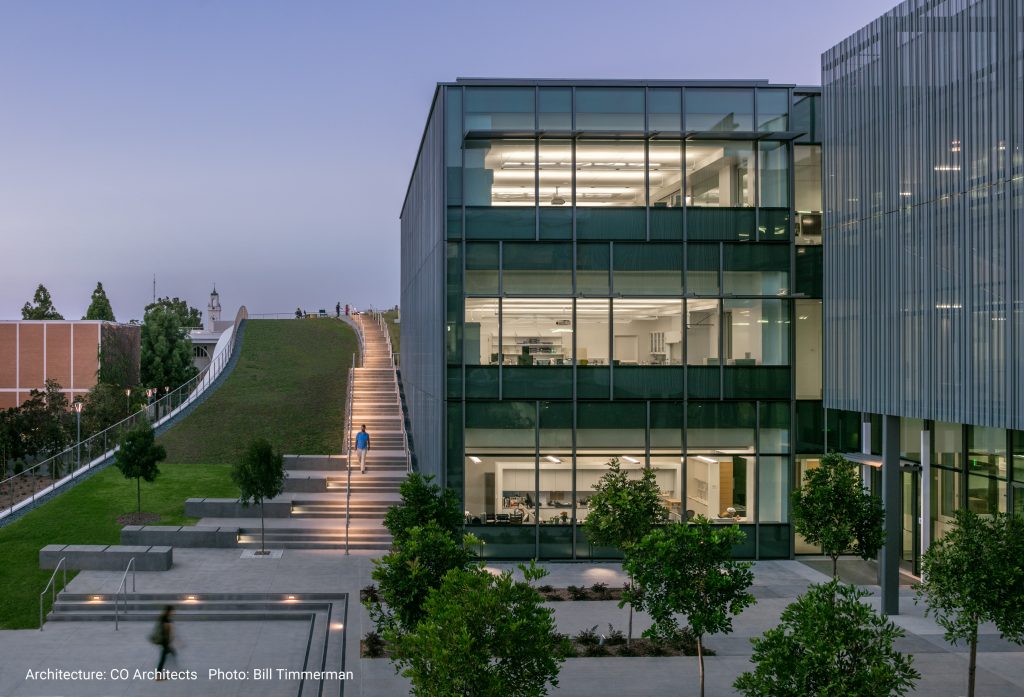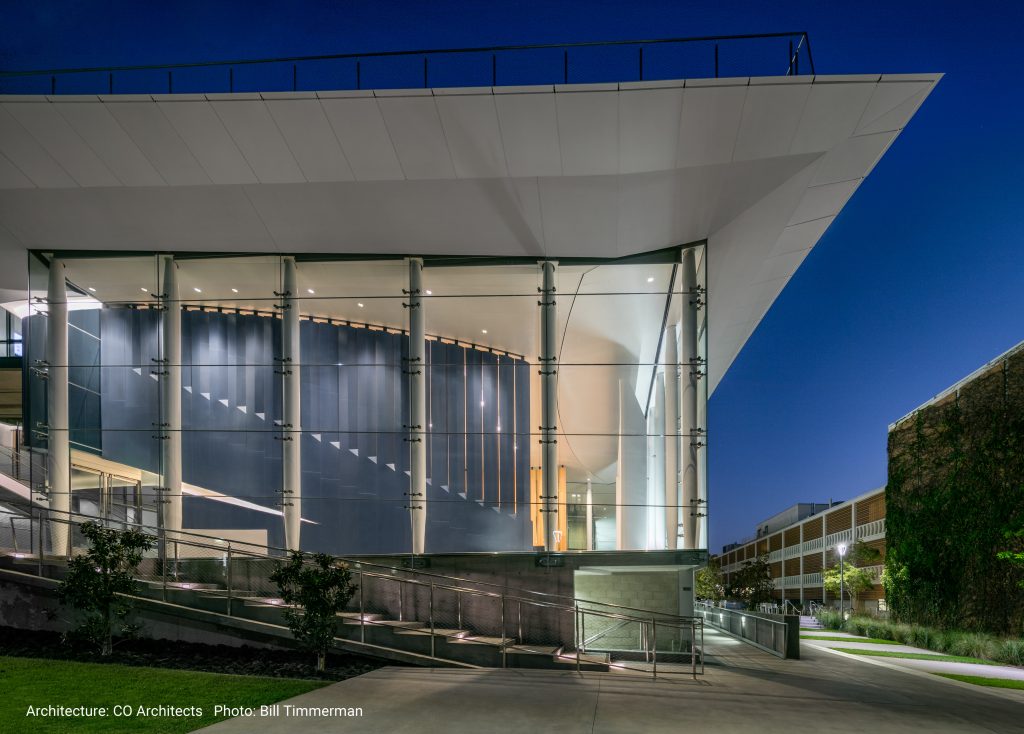You are invited to join the 2018 Bioscience Los Angeles Summit
Los Angeles County is poised to become a world leader in bioscience development and commercialization, commensurate with its role in research and talent development. The 2018 Bioscience Los Angeles Summit will highlight recent achievements and accomplishments, and present achievable solutions for realizing fully the potential the industry has to offer.
Registration and Breakfast – 8:00AM – 9:00AM
Program – 9:00AM – 12:45PM
Lunch and Networking – 12:45PM – 1:30PM
Opening Remarks
Timothy Law Snyder, Loyola Marymount University
Supervisor Mark Ridley-Thomas, LA County Board of Supervisors
William McKeon, Texas Medical Center
Panel 1:
LA’s Bioscience Ecosystem: As Los Angeles County becomes a more recognized bioscience hub, what are the gaps and strengths of the region? How has the picture changed over the last five years and what changes do we anticipate in the future? What is needed to retain companies in the region, especially more mature start-ups exiting incubators?
Moderator:
Dina Lozofsky, Biocom Los Angeles
Panel Members:
Peter Moglia, Alexandria RE Equities
Susan Windham-Bannister, Biomedical Growth Strategies
Caleb Smith, Salem Partners
Alice Jacobs, Third Rock Ventures; Caltech EIR
Panel 2:
Nurturing Success – Incubation and Capital: Are LA start-ups getting the support they need to become successful? What resources are available for maximizing growth? What more can or should be done to make sure local start-ups have access to the resources they need to become successful companies?
Moderator:
David Meyer, LA BioMed
Panel Members:
David Piacquad, Amgen
Kara Bortone, JLABS San Diego
Paul Grand, MedTech Innovator
Rohit Shukla, Larta Institute
Bryson Ishii, LMU
Panel 3:
Building a Trained Workforce to Support the Industry: What are the workforce needs of the industry now and for the foreseeable future? How best can local training dollars be deployed to meet those needs? What can be done to make sure LA has the entrepreneurial talent needed to ensure that start-ups grow into successful companies?
Moderator:
Carolyn Hull, LAEDC Bioscience Council
Panel Members:
Willie Zuniga, Grifols
Chris Beaty, Astrix Technology Group
J. Kim McNutt, Dean, CSU Dominguez Hills
Sheldon M. Schuster, Keck Graduate Institute
Panel 4:
Bioscience Action Plan for Los Angeles County: The Panel Moderators will recap the Panel discussions and formulate a Bioscience Action Plan for the region, focused on identifying achievable goals and setting milestones for measuring progress.
Moderator:
Brad Spellberg, LA County Bioscience Initiative, LAC+USC Chief Medical Officer
Panel Members:
Dina Lozofsky, Biocom Los Angeles
David Meyer, LA BioMed
Carolyn Hull, LAEDC Bioscience Council
Keynote Presentation:
Synthetic Biology – The New Industrial Revolution
Speaker:
Ryan Bethencourt, CEO of Wild Earth, Partner at Babel Ventures and IndieBio Cofounder
“Biology, it’s technology which builds our world, and we can harness it to shift humanity from a scarcity to an abundance economy.”
Synthetic Biology is an interdisciplinary branch of biology and engineering, converging molecular biology and systems biology with engineering to design biological systems and bio-factories with the aim to create improved biological functions to address current and future challenges.
Closing:
Lunch and Networking Reception – Program Partners: 12:45PM – 1:30PM
DATE AND TIME
Thu, September 20, 2018
8:00 AM – 1:30 PM PDT
LOCATION
Loyola Marymount University
Life Sciences Building, Auditorium
1945 Ignatian Cir, Los Angeles, CA 90045
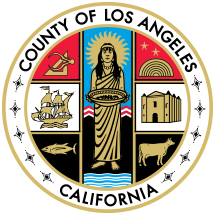



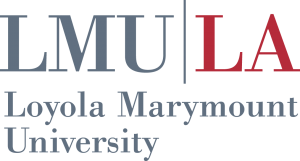
Meet the Speakers and Panel Members
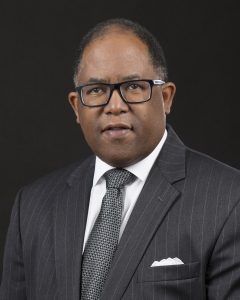
Hon. Mark Ridley-Thomas, Supervisor
L.A. County Board of Supervisors, Second District
Mark Ridley-Thomas is a board member of the Los Angeles County Metropolitan Transportation Authority, the Los Angeles Memorial Coliseum Commission and LA Care, the nation’s largest publicly operated health plan. His major accomplishments during his tenure as County Supervisor include initiating the establishment of civilian oversight of the Los Angeles County Sheriff’s Department and creating the Office of the Inspector General, Office of Child Protection, and Office of Diversion and Reentry. In 2015, Ridley-Thomas led the effort to adopt the Los Angeles County Economic and Community Development Program that set the foundation for the County’s 2017 Bioscience Cluster Development Initiative with its focus on strategies to support start-ups and commercialization.
Prior to his election to the Board of Supervisors, Ridley-Thomas served the 27th District in the California State Senate and the 48th District in the California State Assembly. While in the Senate, he chaired the Senate’s Committee on Business, Professions and Economic Development. While in the Assembly he chaired the Committee on Jobs, Economic Development and the Economy. Ridley-Thomas was first elected to public office in 1991 and served with distinction on the Los Angeles City Council for nearly a dozen years, departing as Council President pro Tempore. He is widely regarded as the foremost advocate of neighborhood participation in government decision-making by virtue of this founding of the Empowerment Congress, arguably the region’s most successful 26-year initiative in neighborhood-based civic engagement.
The Supervisor graduated from Manual Arts High School (Class of 1972) and then earned BA and MA degrees along with secondary and adult education credentials from Immaculate Heart College. Supervisor Ridley-Thomas went on to receive his Ph.D. in Social Ethics from the University of Southern California focusing on Social Criticism and Social Change.

Timothy Law Snyder
President of Loyola Marymount University
Timothy Law Snyder is the 16th president of Loyola Marymount University. He has been a distinguished educator, mathematician, academic administrator, and musician at Jesuit institutions for nearly 30 years. Snyder’s academic and research interests include: computational mathematics, data structures, design and analysis of algorithms, geometric probability, digital signal processing, airline flight safety, HIV diagnosis and prevention, and the education of the Millennial Generation. He earned his M.A. and his Ph.D. in applied and computational mathematics from Princeton University. He also graduated with an M.S. in mathematics, a B.A. in psychology, and a B.S. in mathematics from the University of Toledo.
Prior to LMU, Snyder served as vice president for academic affairs at Loyola University Maryland from 2007-14. He was dean of the College of Arts and Sciences at Fairfield University from 2001-07, and dean of science at Georgetown University from 1995-99.
Snyder’s career has been devoted to the Jesuit and Marymount tradition of encouraging learning, educating whole persons, and furthering the service of faith and the promotion of justice. He told LMU Magazine: “We don’t just educate well, we educate with purpose. And we have the incredible academic freedom to think and talk about anything, and to forge faith with reason. Not many places do that, and only the Jesuits do all the above.”
Snyder envisions LMU to become the definitive center for global imagination and its impacts. Since his arrival in June 2015, he has challenged the university to reimagine and expand LMU’s global, creative, and interdisciplinary footprints. Snyder is expanding LMU’s reputational capital by developing its brand and market position nationally and internationally. Under his leadership, the university has: achieved record-setting enrollments, by volume and quality; strengthened diversity and inclusion programs; exceeded fundraising targets, with particular attention to student scholarships and accessibility; improved significantly in national rankings; and positioned LMU as an institution of global impact.
Snyder has welcomed world leaders to LMU, including President Bill Clinton, Secretary-General Ban Ki-moon of the United Nations, former Philippine President Benigno Aquino III, and former Thailand Prime Minister Thaksin Shinawatra. Snyder has accelerated the institution’s symbioses with Silicon Beach, one of the world’s fastest growing creative and tech innovation hubs. Snyder has developed LMU’s renown as The University of Silicon Beach™ and is establishing LMU’s Playa Vista Campus.
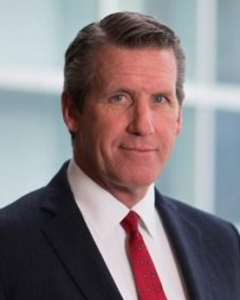
William McKeon
Texas Medical Center
William “Bill” McKeon is the President and Chief Executive Officer of the Texas Medical Center. He is responsible for driving strategic, operational and programmatic initiatives across the Texas Medical Center’s member institutions to enhance its leadership position in the life sciences. McKeon joined the Texas Medical Center in 2013 as executive vice president, chief operating and strategy officer.
McKeon has served as an executive for some of the leading companies and institutions in the world, including DuPont, Stanford University Medical Center, Raytel, US Oncology and Medtronic. His experience as a President and CEO includes heading up industry-changing companies MicroPort Medical Co. in Shanghai and Cellnovo in London.
He holds a Bachelor of Science in legal studies from Roger Williams University and earned a master’s degree from the University of San Francisco – School of Management.
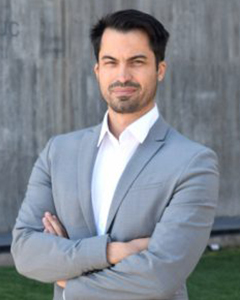
Ryan Bethencourt, M.B.E.
IndieBio
Ryan Bethencourt is a co-founder and CEO at Wild Earth, a biotech startup developing clean high-protein pet foods backed by some of the most successful investors in silicon valley and a Partner at Babel Ventures, a leading early stage biotech venture capital firm. Bethencourt has years of experience in leading, building and advising high-growth food and biotechnology companies.
Bethencourt is a biotech entrepreneur, investor, and one of the founders of the biohacker movement. He’s a co-founder, former Program Director, and Venture Partner at IndieBio and has invested in over 80 early stage biotech startups and served as the head of life sciences at the XPRIZE Foundation.
Bethencourt focuses on using biology as a technology to solve some of the world’s most intractable problems including the future of food, medicine, biological computation, consumer biotech and environmental challenges.
Some of the more notable and impactful companies Ryan has funded and backed include Future of Food (Ava Labs, New Wave Foods, Memphis Meats, Clara Foods, Geltor, Miraculex, Finless Foods, The NotCo, SugarLogix, Nipa Brew, California Dreamin’), Medicine (Orphidia, SyntheX, QIDNI labs, Neuroqore, Ravata, Venomyx Therapeutics, Scaled Biolabs, GEA enzymes, Mendel.ai, Bioaesthetics, Proteorex,Prellis Biologics, DNAlite, QuantumCyte, Gene and Cell Technologies, Forever labs, CUE), Biological Computation (Koniku, Catalog Technologies), Consumer Biotech (NERD Skincare, Amino labs, Mycoworks, Animal Biome, Vitagene), Environmental (Pembient, Bioinspira, UBA Biologics).
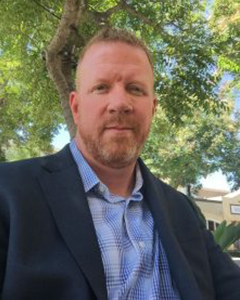
Chris Beaty
Managing Director, Astrix Technology Group
Chris Beaty leads the western region for Astrix, managing both scientific and clinical staffing as well as consulting and outsourced projects focused on laboratory projects and bioinformatics. He has more than nineteen years’ experience in staffing, recruitment, and consulting, and has held sales, recruiting, and leadership roles with staffing industry leaders specializing in IT, Scientific, Clinical and Engineering. Prior to Astrix, Beaty was responsible for developing and executing national sales strategies, which resulted in the development and growth of national accounts that became top tier clients of a large staffing provider. He has developed and served a variety of clients across nearly all industry verticals, driving growth and strategy with both large national clients and a number of mid-sized market leaders.
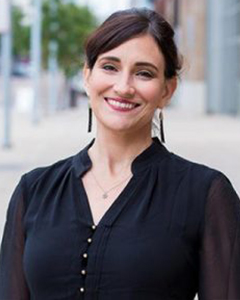
Kara Bartone, Ph.D.
JLABS San Diego
As Head of JLABS in San Diego, Kara Bartone is responsible for external engagement, innovation sourcing, company onboarding, portfolio management, operational excellence, educational programming and P&L. She catalyzes and supports the translation of science and technology into valuable solutions for patients and consumers across the pharmaceutical, medical device and consumer healthcare sectors.
Bartone joins Janssen R&D through Prescience International, where she was Director of Corporate Ventures, primarily focusing on the JLABS project. She has over 10 years experience in the European and the U.S. biotech sector. Prior to joining Prescience, Bartone led the scientific communications and marketing for Belgian-based Galapagos NV at a period when the company grew from 60 to over 800 employees and completed its initial public offering on Euronext. She holds a BS in Chemistry from the University of North Carolina and a PhD in Biochemistry from the University of Texas.
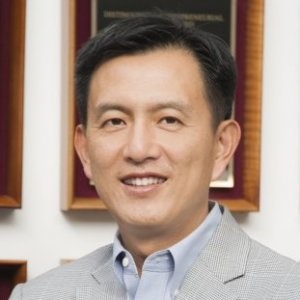
David Y. Choi, Ph.D.
Professor of Entrepreneurship, College of Business Administration
Director, Fred Kiesner Center for Entrepreneurship
David Y. Choi has had an active career as an academic, consultant and entrepreneur over the last 20 years. Choi has been a faculty member at LMU since 2003 and is director of the nationally-ranked Fred Kiesner Center for Entrepreneurship. He has taught undergraduate and MBA courses in entrepreneurship, entrepreneurial finance, social entrepreneurship and technology management at LMU as well as other institutions around the world including Peking University and Korea University. Choi is a winner of a national teaching award from the United States Association of Business and Entrepreneurship (USABE). He has been featured or quoted in many business publications, including The Wall Street Journal, Los Angeles Times, Fortune, Los Angeles Business Journal and Business2.0, among others. Choi has started, run, or owned businesses in several industries including biotechnology, software, financial services, and foods.
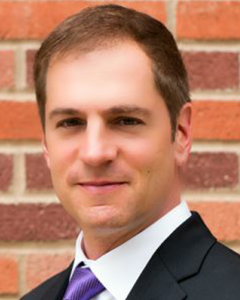
Paul Grand
MedTech Innovator
Paul Grand founded and has managed MedTech Innovator since it started as program within RCT Ventures in 2013. In 2016, with the financial support of RCT and other sponsors, Paul left to run MedTech Innovator as a stand-alone company. In his previous role as Managing Director for RCT Ventures, the investment arm of Research Corporation Technologies, Inc., Grand’s focus was on medical device investments and programs to encourage innovation and commercialization of early-stage technologies at institutions like UCLA, Stanford, USC, UCSF, UCSD, CU, Utah, and UW. Prior to joining RCT, Grand founded and operated eight high tech, medical device and biotechnology companies. In the life sciences, Grand was co-founder and VP of Operations of Imagine Pharmaceuticals and co-founder and CEO of MicroSurgeon in Los Angeles.
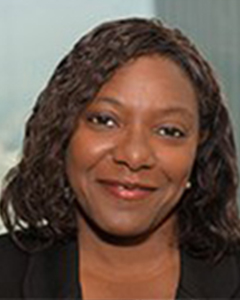
Carolyn Hull, M.S.
LAEDC
Carolyn Hull is the Vice President of Industry Cluster Development at LAEDC. She oversees strategies, programs and staff to build capacity in the export-oriented industries in which L.A. County has productive and/or comparative advantages, such as: aerospace, advanced transportation, biosciences, entertainment/digital media, and trade and logistics. Focused development of industry clusters – as a key organizational unit for understanding and improving performance of regional economies – can unleash incredible growth potential when used as an approach that cuts across the traditional fields and tools of economic, community and workforce development, helping to enhance their effectiveness. When key industry clusters flourish, well-paying jobs are created and the increased economic activity generates greater opportunity and prosperity for all.
Previously at LAEDC, Ms. Hull was focused on partnering with the public sector in Los Angeles County to plan and implement real estate and financing transactions that attract investment and retain and grow Los Angeles County’s employment base, including projects such as Altasea Marine Research Park.
Before joining LAEDC, Hull was the Chief Financial Officer at Genesis LA. Genesis LA is a real estate based investor that directs its capital and strategic advisory services to projects located inner city communities throughout Los Angeles County. Prior to joining Genesis LA Hull was the South Los Angeles Regional Administrator for the Community Redevelopment Agency of the City of Los Angeles (CRA/LA). In this role, Hull managed all redevelopment programs, activities and staff for the South Los Angeles region. Prior to that, Hull served as the CRA/LA’s Manager of Capital Finance. In this capacity, she analyzed project-financing plans, and developed financing structures to optimize the utilization of public and private resources for all of CRA/LA’s priority projects. At the same time, Hull served as the co-founder and President of the Los Angeles Development Fund (LADF). Under her leadership, LADF received and managed a $75 million New Markets Tax Credit Allocation. In addition, Hull managed CRA/LA’s $700 million portfolio of conduit bonds.
Prior to joining CRA/LA Hull served as a Director at CB Richard Ellis Consulting (CBRE Consulting), based in Los Angeles. At CBRE Consulting she provided consulting services for a wide range of real estate development projects for corporate, institutional, nonprofit, and governmental clients in key service areas all over the United States, including economic development and redevelopment, development feasibility analysis, highest and best use studies, fiscal and economic impact analysis, policy analysis, transit-oriented development, and corporate location strategy.
Hull holds a Bachelor of Science degree in Industrial Management from Carnegie-Mellon University and a Master of Science degree in Economics and Urban Planning from the London School of Economics, in addition to a Certificate in Real Estate Finance from the Massachusetts Institute of Technology.
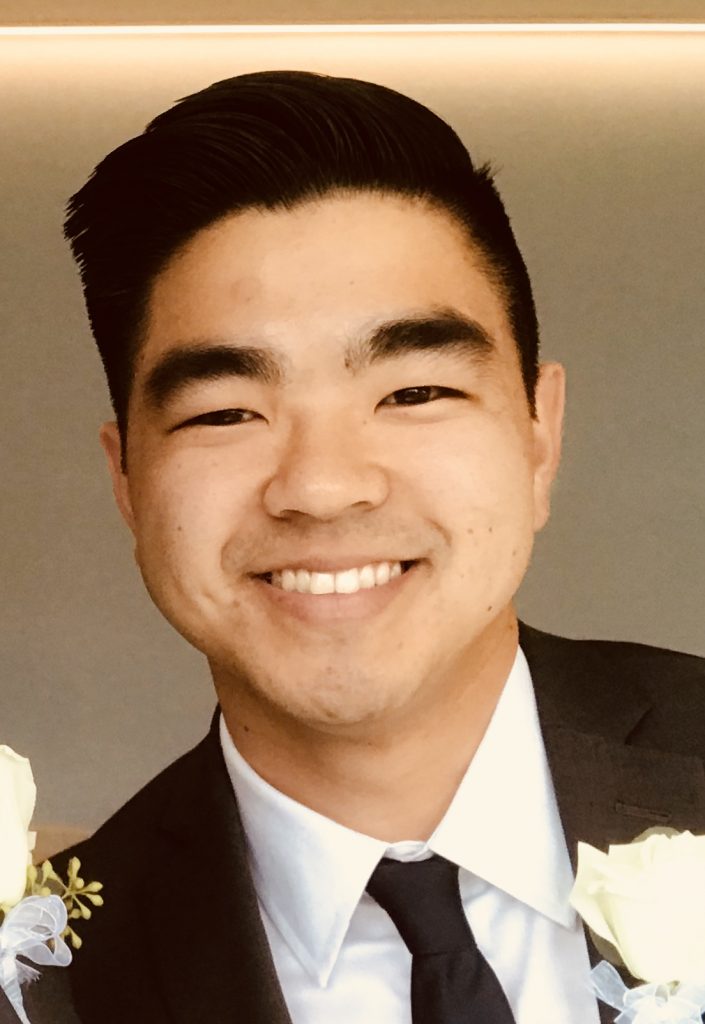
Bryson Ishii
Growth Factor Ventures
Bryson Ishii is a Principal at Growth Factor Ventures, a Los Angeles based investment firm specializing in healthcare. Through his time with Growth Factor Ventures, Bryson has assisted companies through a variety of developmental phases, ranging from small start-up investments to larger “going-public” transactions. His previous experience includes serving as the Associate Director for the Fred Kiesner Center for Entrepreneurship at Loyola Marymount University, and prior to that as a Management Executive overseeing strategic investments for Rigo International, an import manufacturing firm. During his free time, you can find him cycling through the streets of Los Angeles, sailing off the coast in the Pacific Ocean, or playing Hawaiian music on his ukulele.
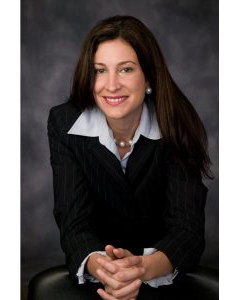
Alice Jacobs, M.D.
Caltech
Alice Jacobs serves as EIR at Caltech and as an advisor to FiNC Technologies, Third Rock Ventures/MIT/Bob Langer, Biolabs, Greybird Ventures and Essex Management. Jacobs also served as an advisor to GE Healthcare Ventures. Advisory/investor roles include digital health/wellness especially artificial intelligence/machine learning/data analytics-driven applications, microbiome, clean energy, synthetic biology, genomics, liquid biopsy and other precision medicine technologies, drug discovery/development platforms and gene editing. This includes a platform technology in the top 10 recommendations of the Blue Ribbon Panel on the cancer moonshot to speed progress in cancer. While still a student at Harvard Medical School, Jacobs co-founded a health technology company along with Dr Boris Nikolic (Chief Science and Technology Advisor to Bill Gates and Managing Director, Biomatics Capital.) The company became an industry leader globally in the development and manufacturing of molecular diagnostic tests, prior to exit. Jacobs holds multiple patents in personalized medicine and has received numerous awards including being recognized by Scientific American as one of the top 50 innovators and by the World Economic Forum as a Young Global Leader, a 40 under 40 award by the Boston Business Journal as well as for Healthcare Innovation in Clinical Diagnostics by Frost & Sullivan. She holds a BA in Art History, a BS in Biological Sciences from Stanford with Honors in Developmental Neurobiology and an MD from Harvard Medical School.
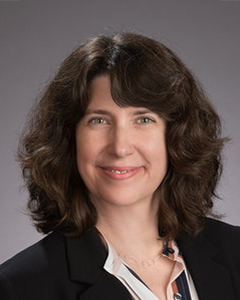
Dina Lozofsky, M.B.A.
Biocom
As Executive Director of Biocom’s Los Angeles office, Dina Lozofsky leads Biocom’s programming and benefits efforts in the growing LA life science industry and helps raise awareness surrounding the regional cluster’s many research accomplishments. Biocom works on behalf of over 1000 members to drive public policy, build an enviable network of industry leaders, create access to capital, introduce cutting-edge workforce development and STEM education programs, and create robust value-driven purchasing programs. Lozofsky’s experience includes leadership roles in academia, startups and established companies as well as board member seats at the LA Venture Association (LAVA), the LA Bioscience Hub, and the City of Los Angeles Workforce Development Board. She holds a BS in Aerospace Engineering from MIT, an MBA from USC’s Marshall School of Business and is a registered Patent Agent.
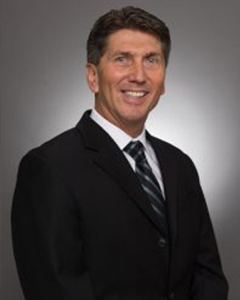
J. Kim McNutt, M.A.
CSU Dominguez Hills
J. Kim McNutt is currently in his 5th year as Dean of the College of Extended & International Education at Cal State Dominguez Hills. McNutt leads the work of 45 academic and professional staff. The self-support college generates nearly $17M annually in tuition, delivering a portfolio of 50 online and classroom based education and training programs. He has launched several new programs at CSUDH including, Marketing with Social Media, and a master’s degree in Cyber Security. He has expanded South Bay access to education opening a new satellite classroom location in Redondo Beach offering professional development training programs. His college is also leading the way as the first CSU to offer alternative credentials and digital badges to students.
McNutt has held myriad academic leadership positions over the last 25 years. His career encompasses working for both public and private universities in San Antonio, Dallas, Phoenix, the San Francisco Bay Area, and his hometown, Las Cruces, New Mexico. (Go Aggies!)
McNutt is a first generation college graduate. This drives his passion to expand access to underserved populations, including adult, returning and non-traditional students.
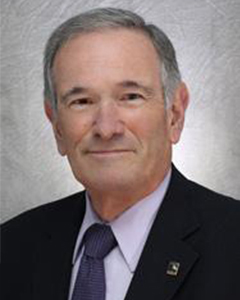
David Meyer, Ph.D.
LA BioMed
David Meyer is Professor Emeritus at the David Geffen School of Medicine at UCLA. He has served as LA BioMed’s President and CEO since 2009. Prior positions in research administration include serving as EVP Research at the House Ear Institute (2008-09) and as Vice President for Research and Scientific Affairs at the Cedars-Sinai Medical Center (2004-2007). He has had an active and productive career in research, first at the University of Basel, Switzerland as an Instructor (1973-79), then at the European Molecular Biology Laboratory in Heidelberg Germany (1979-1987), followed by appointment as Professor of Biological Chemistry at the UCLA School of Medicine (1987-2005). Aside from teaching and research, Meyer served as Associate Dean for Basic Science and then as Senior Associate Dean for Graduate Studies at UCLA. Meyer’s research into the molecular mechanism of membrane biogenesis and secretion has resulted in numerous peer-reviewed publications and reviews, including articles in Nature, Cell, and The Journal of Cell Biology. Meyer is a native of Los Angeles, having graduated from Los Angeles High School and earning both his bachelor’s and doctoral degrees at UCLA.
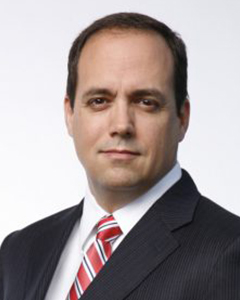
Peter M. Moglia, B.A.
Alexandria Real Estate Equities, Inc.
Peter M. Moglia is Co-Chief Executive Officer and Chief Investment Officer of Alexandria Real Estate Equities, Inc. He has served as Chief Investment Officer since January 2009 and assumed the role of Co-Chief Executive Officer on April 23, 2018. A 20-year Alexandria veteran, Moglia is a respected leader with extensive industry and market knowledge.
He jointly leads the company in his role as co-CEO, and as Chief Investment Officer Moglia oversees the company’s strategic growth through a focus on acquisitions and dispositions, development and redevelopment, leasing, and joint ventures. He also concurrently leads Alexandria’s real estate finance team, which provides critical support across a range of underwriting, due diligence, and financing activities.
Previously, Moglia served in many important capacities of increasing scope and responsibility, including managing the company’s Seattle asset base and operations from April 2003 through December 2008, during which time the region doubled its revenue.
Prior to joining Alexandria, Moglia served as an Analyst for Lennar Partners, Inc., a diversified real estate company, where his responsibilities included underwriting and structuring direct and joint venture real estate investments. Moglia began his real estate career in the Management Advisory Services group within the E&Y Kenneth Leventhal Real Estate Group, a subsidiary of Ernst & Young LLP, where he spent six years providing valuation, feasibility, financial modeling, and other analytical services to a number of real estate developers, financial institutions, pension funds, and government agencies.
Moglia received his Bachelor of Arts degree in Economics from the University of California, Los Angeles.
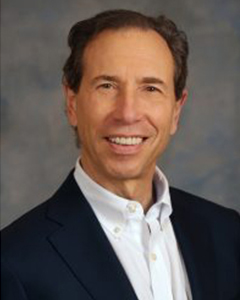
David A. Piacquad, M.B.A.
Amgen
David A. Piacquad joined Amgen in 2010 and was named senior vice president, Business Development, in March 2014. He is responsible for business development across Amgen and leads the organization that combines the previously separate Corporate Development and External Research & Development groups. Prior to this role, Piacquad served as vice president, Strategy & Corporate Development, responsible for mergers and acquisitions, inbound and outbound Licensing, Amgen Ventures and Corporate Alliance Management.Prior to Amgen, Piacquad was senior vice president, Business Development & Licensing at Schering-Plough Corporation. Before joining Schering-Plough, Piacquad spent more than 20 years at Johnson & Johnson, where he held a series of leadership roles in finance and business development. Piacquad holds a BA degree from Colgate University and an MBA from the Wharton School.
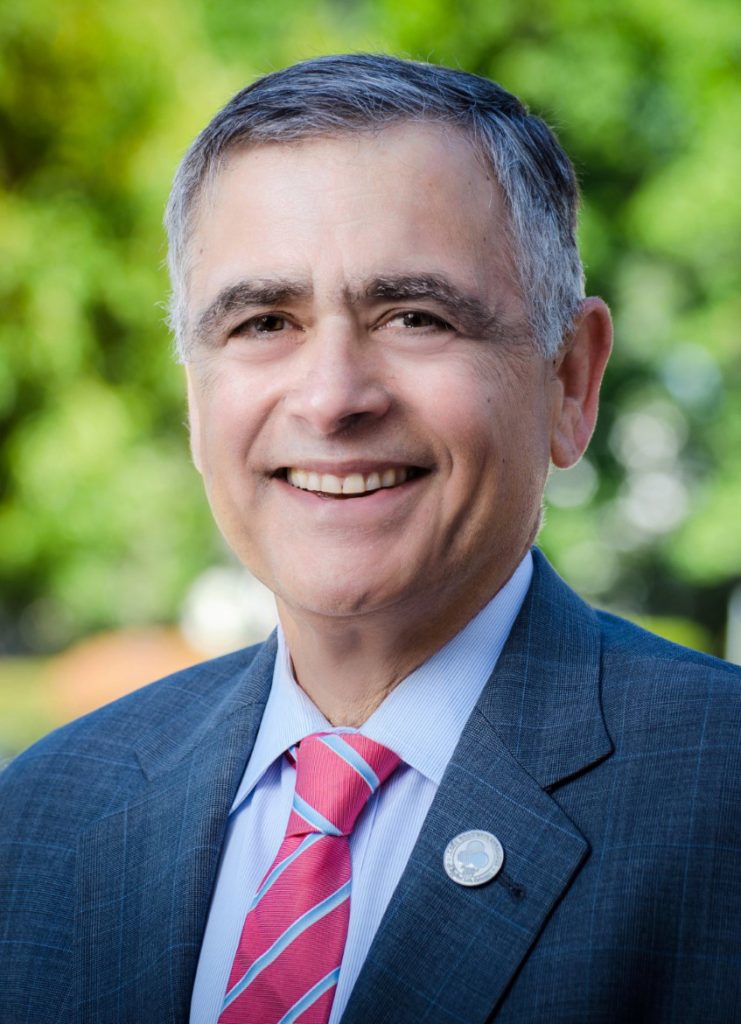
Sheldon M. Schuster
Keck Graduate Institute
Sheldon M. Schuster became the second president of Keck Graduate Institute (KGI) on July 15, 2003, succeeding founding president Henry “Hank” Riggs.
During Schuster’s tenure as president, KGI has expanded both its academic programs and financial resources. Schuster’s research focused on finding new targets for synthesizing mechanism-based inhibitors of disease-related enzymes by studying the relationship between the structure and function of ATP synthase and asparagine synthetase. Schuster also examined the role of mycoplasmal infections in the progression of malignant tumors. His research has been published in the journal Biochemistry. He also has written commentaries that appeared in the journal Biochemistry and Molecular Biology Education.
Schuster has been active in professional organizations such as the Biotechnology Innovation Organization (BIO) and the Council for Biotechnology Centers. He currently is a features editor of the journal Biochemistry and Molecular Biology Education and a member of its editorial board. In 2007, the American Association for the Advancement of Science elected Schuster as an AAAS Fellow, an honor given by members to their peers who have made significant contributions in areas such as research, teaching, and technology.
After completing his doctorate, Schuster joined the Institute for Enzyme Research at the University of Wisconsin-Madison. In 1976, he became an assistant professor of chemistry and life sciences at the University of Nebraska, Lincoln, where he subsequently rose to the rank of professor of chemistry and biological sciences. In 1989, Schuster moved to the University of Florida in Gainesville, where he became a professor of biochemistry and molecular biology, interim assistant vice president for research and graduate education, and director of the Biotechnology Program before relocating to Southern California.
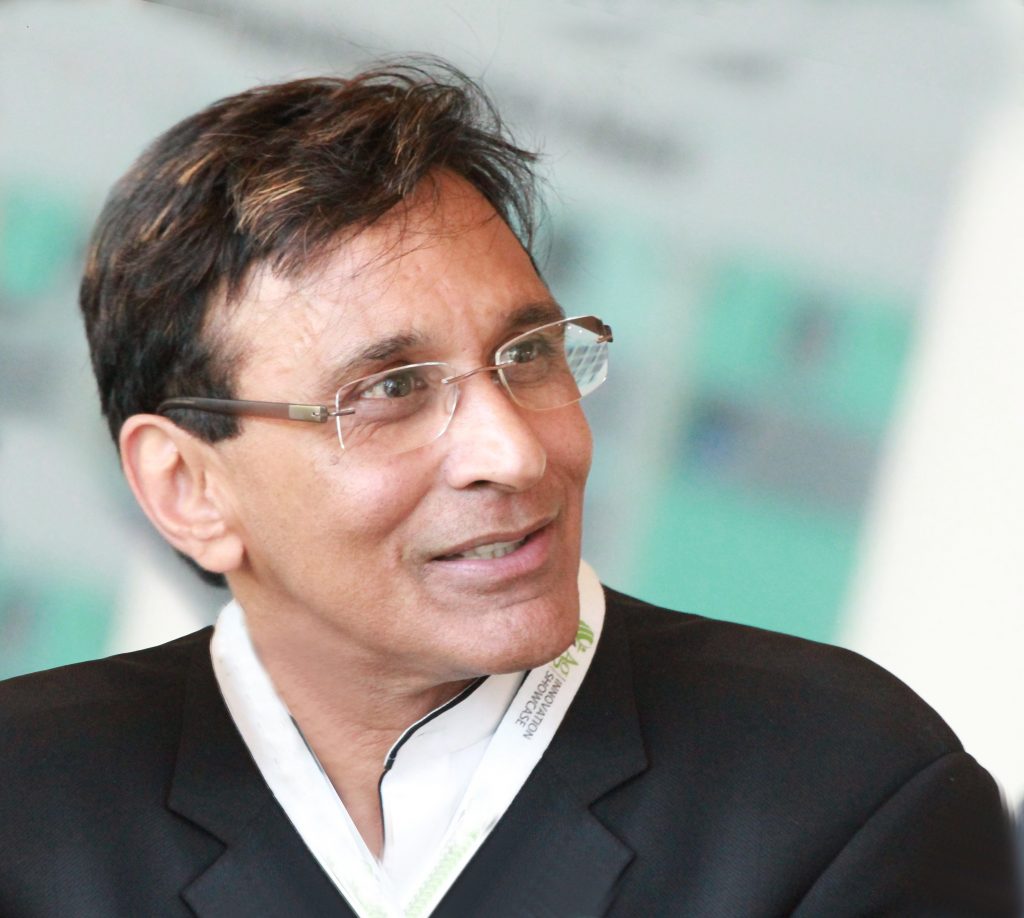
Rohit Shukla
Larta Institute and Larta Inc.
Rohit Shukla founded Larta Institute in 1993. He serves as its CEO. Under his direction, with a mission to accelerate innovations that “feed, fuel and heal the world,” Larta has become the largest commercialization acceleration program in the country, and one of its oldest. It has established national-scale programs in the life sciences (with the National Institutes of Health – NIH – since 2004 and the National Science Foundation, NSF, since 2008), food and agriculture (USDA, since 2008) and Cleantech and Energy (the Department of Energy, DOE, since 2017). These programs guide and counsel hundreds of entrepreneurs receiving government funding for their innovations, and enable them to connect, partners, investors and customers using Larta’s well-established network-centric methodology. Larta also has worked with several countries overseas, which it has advised over the years. Over 3000 companies have participated in Larta’s national and global-scale commercialization and education programs since 2004.
Shukla has served as an advisor to the OECD on science-based small business IP frameworks, and as an external advisor to federal and state governments in the U.S.,and has helped to influence policy on incentives and initiatives focused on biotech-led entrepreneurship.
He has a Master’s in Social and Political Sciences from the University of Cambridge, U.K. and a Master’s in Communications Arts and Sciences from Loyola Marymount University, Los Angeles. He developed and taught the first course in Startup Management for the MBA program at the Graziadio School at Pepperdine University Los Angeles, and has led several short courses on innovation and management in Australia, New Zealand, Sweden, Finland, Malaysia and Japan. He developed Larta’s Global Bridge™ programs for entrepreneurs in Israel, UAE, Australia, New Zealand, Malaysia, Russia, Korea, Japan, Canada, Colombia and Brazil.
He speaks to audiences around the world on subjects ranging from commercialization and innovation to globalization and entrepreneurship.
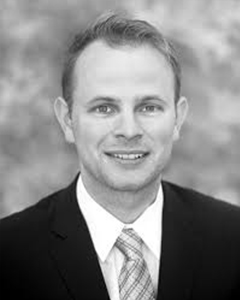
Caleb Smith, B.S.
Salem Partners, LLC
Caleb Smith joined Salem Partners in 2007 and is focused on sourcing, evaluating and structuring transactions in the healthcare & life sciences sectors. While at Salem, he has been directly involved with companies such as Exemplar Pharma (sold to Allergan), Femasys (private), Neos Therapeutics (Nasdaq: NEOS), OncoNano Medicine (private), Sebacia (private) and ZS Pharma (sold to AstraZeneca). Before joining Salem, Smith was a director at Harvey & Company, a leading merchant banking firm based in Newport Beach. Prior to Harvey & Company, he was a consultant with Public Health Foundation Enterprises and performed clinical research at Los Angeles County + USC Medical Center. Mr. Smith graduated with a Bachelor of Science from the University of Southern California.
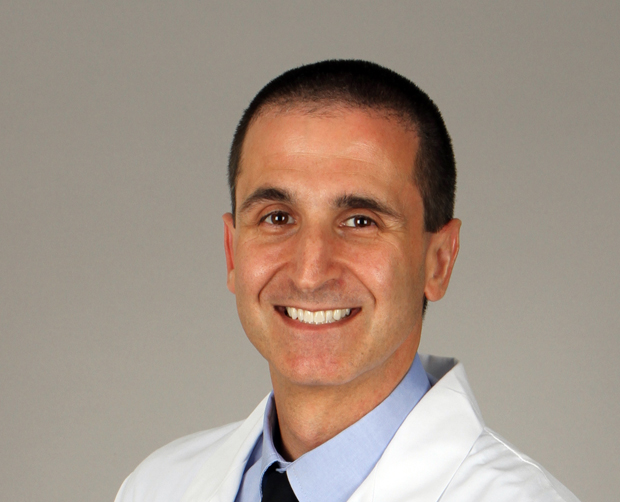
Brad Spellberg, MD FIDSA FACP
Brad Spellberg is Chief Medical Officer at the Los Angeles County-University of Southern California (LAC+USC) Medical Center, and Medical Director of Biosciences for Los Angeles County. He is also a Professor of Clinical Medicine and Associate Dean for Clinical Affairs at the Keck School of Medicine at USC. After graduating from UC Berkeley, he received his MD from UCLA, where he won the prestigious Stafford Warren award for the top academic performance in his graduating class. Spellberg completed his Residency in Internal Medicine and subspecialty fellowship in Infectious Diseases at Harbor-UCLA Medical Center.
Spellberg’s NIH-funded research interests focus on vaccines and immunotherapies to combat antibiotic-resistant pathogens. He has also co-founded 3 biotechnology start up companies, which have resulted in 3 molecules that are in active clinical development (phase I-III clinical trials). Finally, Spellberg has worked extensively to combat the problem of antibiotic resistance. He has testified before Congress on this matter, has had numerous radio and TV appearances, and was featured in the documentary movie, Resistance. Finally, Spellberg is the author of Rising Plague, which he wrote to inform the public about the crisis of antibiotic resistant infections.
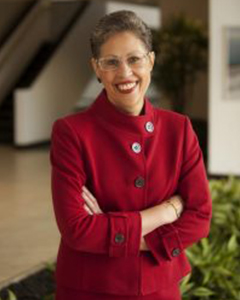
Susan Windham-Bannister, Ph.D.
Biomedical Growth Strategies
Dr. Susan Windham-Bannister is a nationally and internationally recognized expert in biopharma innovation, market access and market optimization strategies. She has been recognized by the Boston Globe as one of the “10 Most Influential Women in Biotech,” by Boston Magazine as one of the “50 Most Powerful Women in Boston” and is the incoming President of the National Board of Directors of the Association for Women in Science (AWIS). Windham-Bannister is Managing Partner of Biomedical Innovation Advisors LLC, which she founded with Dr. Harvey Lodish, co-founder of Genzyme, and member of the Whitehead Institute, MIT. She also serves as the President and CEO of Biomedical Growth Strategies, LLC.
From 2008-2015 Windham-Bannister served as President and CEO of the Massachusetts Life Sciences Center (MLSC), an independent authority charged with administering a $1-billion Life Sciences investment fund created by Governor Deval Patrick. She is the first African American in the U.S. to lead a life sciences-focused innovation fund of this scale. The MLSC invests to catalyze innovation in all sectors of the Massachusetts life sciences community – biotechnology, pharmaceuticals, medical devices, medical diagnostics and bioinformatics/analytics.
Since completing her tenure as President and CEO of the Massachusetts Life Sciences Initiative, Windham-Bannister has been an advisor to other city, state and regional life sciences initiatives in the U.S. and abroad.
Windham-Bannister has co-authored two books: Competitive Strategy for Health Care Organizations, and Medicaid and Other Experiments in State Health Policy. She also has written numerous articles on competition in today’s health care marketplace and is a frequent speaker at national and international life sciences conferences.
Windham-Bannister received a B.A. from Wellesley College, a Doctorate in Health Policy and Management from the Florence Heller School at Brandeis University, and a Doctor of Science from Worcester Polytechnic Institute (honoris causa). She completed her doctoral work at the Heller School under a fellowship from the Ford Foundation and was also a post-doctoral fellow at Harvard University’s John F. Kennedy School. Windham-Bannister also served as a Fellow in the Center for Science and Policy (CSAP) at Cambridge University, Cambridge, England.
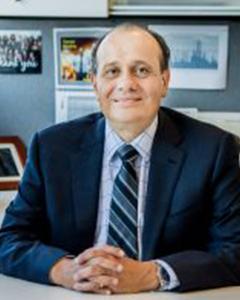
Willie Zuniga, B.S.
Grifols Biologicals LLC
Since 2003, Willie Zuniga has been the President of Grifols Biologicals LLC, a biopharmaceutical company located in Los Angeles, California. Within his role, Zuniga is responsible for overseeing more than 900 employees working in Manufacturing, Quality, Facilities, Finance, and Compliance Training operations. He has served on the City of Los Angeles Workforce Investment Board working with the Mayor and the City Council to develop strategic initiatives, encourage regional training investments, and coordinate development efforts in the area. He continues to be a champion for Education and Workforce development in the County of Los Angeles supporting career pathways at local universities and colleges; the GO East LA, cradle to career program; youth empowerment efforts that promote STEM and post-secondary education; industry alliance boards to share trends and guide curriculum; and collaborations to create certificate programs promoting greater employment opportunities and keep the talent in the area. Zuniga’s career has spanned nearly 40 years in the bioscience industry. Today, he remains focused and committed to saving lives with the products manufactured by the dedicated employees of Grifols.
Loyola Marymount University Life Sciences Building
